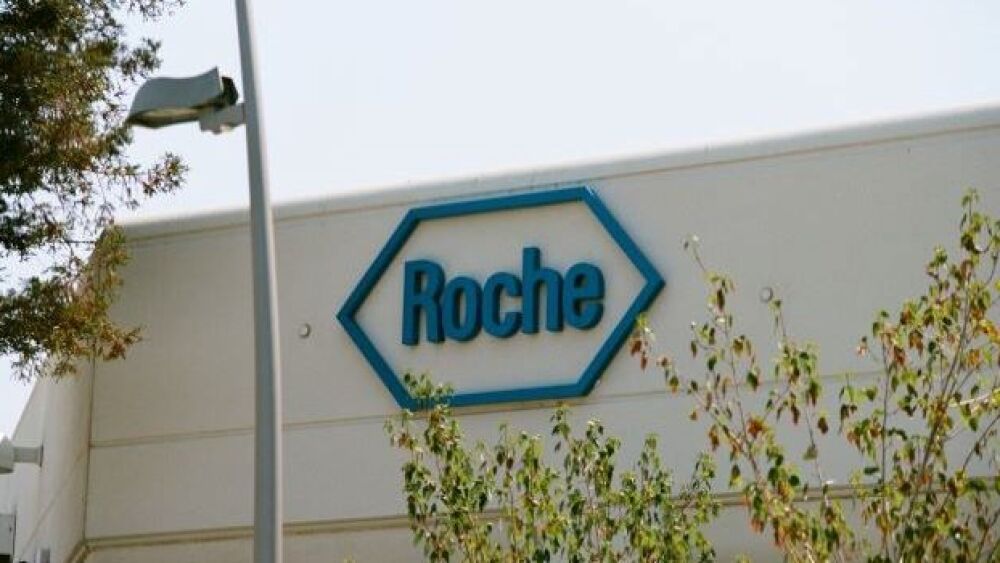The layoffs will go into effect on July 25, according to a Worker Adjustment and Retraining Act (WARN) notice filed in April.
Pictured: Blue Roche logo on white building/Smith Collection/Gado/Getty Images
Roche has cut 165 jobs in Branchburg, New Jersey—the home of its largest diagnostic operations center in the U.S. The layoffs will go into effect on July 25, according to a Worker Adjustment and Retraining Act (WARN) notice filed in April.
Johnny Smith, vice president of communications, Roche Diagnostics U.S., told BioSpace in an email that the layoffs are part of an effort to scale back the development of its COVID-19–related products. The company’s COVID-19–related portfolio includes SARS-CoV-2 antibody and antigen tests, as well as SARS-CoV-2 and influenza combination antigen tests.
Smith also stated these layoffs are not part of a larger initiative to reduce staff in other locations.
“Overall, we expect that the number of employees across Roche Diagnostics globally will remain broadly stable,” he said.
The decision to scale back on its COVID-19 portfolio couldn’t come at a better time for the company. On Thursday, the FDA issued a recall that included more than 500,000 SD Biosensor Pilot COVID-19 At-Home Tests that Roche Diagnostics distributed to CVS Health and Amazon.
The agency cited concerns about bacterial contamination in a liquid solution that is part of the at-home test kits as the reason for the recall, stating that such contamination may pose safety concerns in addition to influencing the accuracy of test results.
Though there is no way to know for sure, this recall is likely not the primary motivator for Roche to scale back its pandemic-related efforts. Other biopharma companies that profited from COVID-19–related products are now also shifting their focus.
For example, on Tuesday, Novavax announced plans to cut its global workforce by approximately 25%, a move that CEO John Jacobs said would help the company make the most of the “current global opportunity” for its COVID-19 vaccine.
Additionally, last Friday, the WHO ended its global emergency status for COVID-19, a designation that has been in place for more than three years. Citing a sharp decline in COVID-19–related deaths, WHO Director-General Tedros Adhanom Ghebreyesus said he declared the virus was no longer a global health emergency.
Rosemary Scott is a content editor at BioSpace, focusing on the job market and career development for professionals in the life sciences. You can reach her at rosemary.scott@biospace.com and on LinkedIn.





